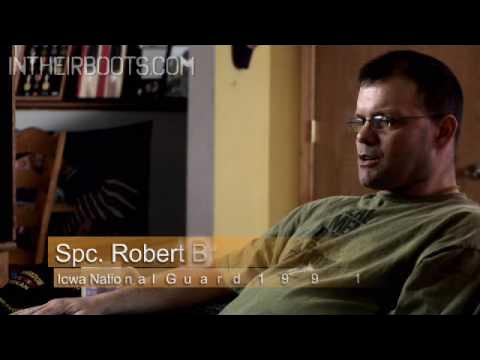Understanding Traumatic Brain Injury
Summary
TLDRThis chapter educates on traumatic brain injuries (TBI), detailing their causes and varying severities from mild to severe. It explains symptoms, diagnostic scales like the Glasgow Coma Scale and Rancho Los Amigos scale, and rehabilitation processes. It also introduces medical terms related to TBI and emphasizes the importance of understanding a patient's pre-injury state for effective rehabilitation.
Takeaways
- 🤕 Traumatic Brain Injury (TBI) can occur without open wounds, skull fractures, or loss of consciousness.
- 🔍 TBI is classified into mild, moderate, and severe based on the duration of loss of consciousness and memory loss.
- 👥 Symptoms of TBI vary and can include motor impairment, personality changes, and cognitive difficulties.
- 🏥 The Glasgow Coma Scale is used to measure the level of alertness immediately after a brain injury.
- 📊 The Rancho Los Amigos scale assesses the patient's response to external stimuli over time.
- 🏥 The JFK Coma Recovery Scale is used for patients in a coma or minimally conscious state to gauge long-term prognosis.
- 🧠 Diagnostic tools like CT scans and MRIs provide detailed images of brain damage post-injury.
- 🧪 Neuropsychological assessments evaluate cognitive skills and help develop rehabilitation plans.
- 🔬 Medical terms like axonal shearing, cerebral atrophy, and edema are crucial for understanding the injury's impact.
- 🛑 Treatment initially focuses on stabilizing the patient, preventing complications, and addressing medical issues arising from the injury.
- 🏋️♂️ Rehabilitation aims to relearn basic skills, improve function, and increase independence through physical and cognitive therapy.
Q & A
What is a Traumatic Brain Injury (TBI)?
-A Traumatic Brain Injury (TBI) is caused by a blow to the head or violent movement of the head, such as from a car accident, fall, or military explosion. It does not necessarily require an open wound, skull fracture, or loss of consciousness.
How are traumatic brain injuries classified?
-Traumatic brain injuries are classified as mild, moderate, or severe based on the initial length of loss of consciousness and post-traumatic memory loss.
What is considered a mild traumatic brain injury?
-A mild traumatic brain injury occurs when the patient loses consciousness for 15 minutes or less, experiences memory loss about the event, or feels dazed, disoriented, or confused, often referred to as a concussion.
What symptoms might someone with a traumatic brain injury experience?
-Symptoms can include difficulty with balance and walking, blurred vision, headaches, trouble speaking and swallowing, motor impairment, seizures, changes in sensory perceptions, sleep patterns, and sexual function.
How can personality changes affect a person with a TBI?
-Personality changes after a TBI can include difficulty communicating, memory impairments, depression, disorientation, mood swings, forgetfulness, and challenges with reasoning, focus, and logic.
What is the Glasgow Coma Scale and how is it used?
-The Glasgow Coma Scale is used to measure a person's level of alertness after a brain injury, ranging from 3 to 15, with 15 indicating full alertness and 3 indicating a deep coma.
What is the Rancho Los Amigos Scale and how does it help assess a patient's recovery?
-The Rancho Los Amigos Scale is a behavioral evaluation tool used after TBI to assess a patient's response to external stimuli and track progress through 10 levels, from no response to handling multiple tasks.
What diagnostic tools might be used to assess brain injury?
-Diagnostic tools include X-rays, CT scans for detailed images of brain damage, and MRI for identifying blood clots, swelling, or skull fractures.
What is a neuropsychological assessment and why is it important?
-A neuropsychological assessment evaluates cognitive skills and functions necessary for daily life, helping to develop a rehabilitation plan by understanding the impact of the injury.
What are some medical terms related to TBI that patients and families should be aware of?
-Terms include axonal shearing, brain herniation, cerebral atrophy, edema, hematoma, hemorrhage, intracranial pressure, and different stages of consciousness like minimally conscious state, vegetative state, and coma.
How does rehabilitation help after a traumatic brain injury?
-Rehabilitation aims to improve function and independence by stimulating physical and cognitive abilities, teaching new techniques for lost skills, and encouraging the body's natural healing process.
Outlines

このセクションは有料ユーザー限定です。 アクセスするには、アップグレードをお願いします。
今すぐアップグレードMindmap

このセクションは有料ユーザー限定です。 アクセスするには、アップグレードをお願いします。
今すぐアップグレードKeywords

このセクションは有料ユーザー限定です。 アクセスするには、アップグレードをお願いします。
今すぐアップグレードHighlights

このセクションは有料ユーザー限定です。 アクセスするには、アップグレードをお願いします。
今すぐアップグレードTranscripts

このセクションは有料ユーザー限定です。 アクセスするには、アップグレードをお願いします。
今すぐアップグレード関連動画をさらに表示

Overview of Traumatic Brain Injury (TBI)

Traumatic Brain Injury | All you need to know

Traumatic Brain Injury - A documentary on soldiers and veterans (Pt. 1)

Research Methods: Experimental Design

2-Minute Neuroscience: Concussions

Brain condition affecting sports stars only able to be diagnosed in death | 60 Minutes Australia
5.0 / 5 (0 votes)
